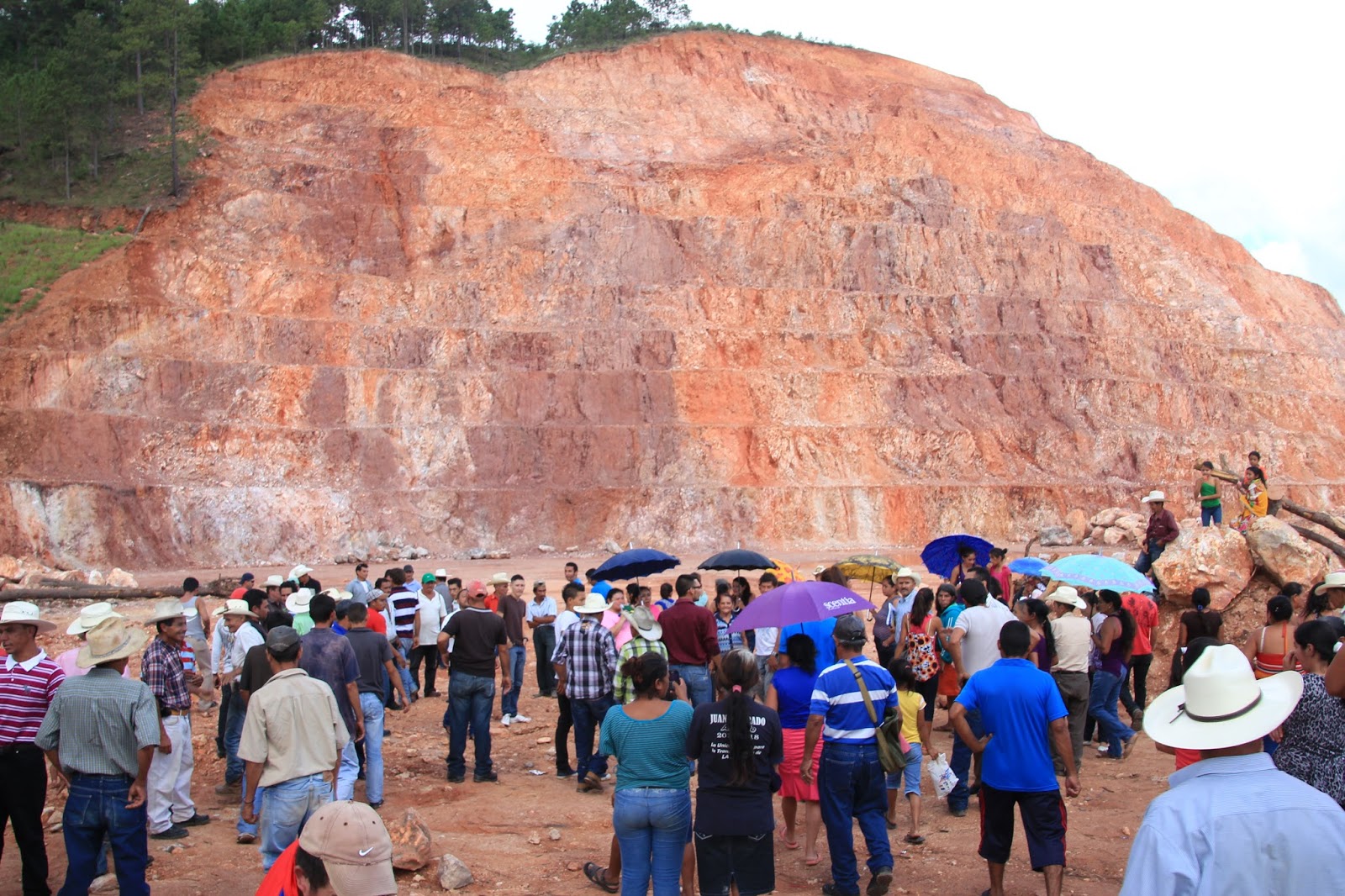Drones, Military Intelligence and Shady Business Contacts: Aura Mineral’s Tactics in Honduras
Immediately following the release of the three leaders of the Azacualpa Environmental Committee early this week, affected communities denounced the presence of a drone hovering over the location of the blockade. They believe that the drone is being utilized by Aura Minerals and its’ private security company, Servicios Especiales de Seguridad (SESER) to provoke the community and to take pictures of and identify individuals participating in the blockade.
Contributing to the fear and tension, the local communities are aware of Aura Mineral’s business relationships in the region. Its private security company, SESER is owned by Angel Rene Romero, a former military commander and congressional candidate for the National Party in the Department of Copan. Rene Romero was part of the infamous military Battalion 3-16 in the 1980s, an intelligence unit inside the Honduran military responsible for political assassinations and torture of state opponents.
Another contract that Aura Minerals holds at its’ San Andres gold mine, is with a Honduran transportation company called INCOBE. The contract involves various machinery and dump trucks that move crushed rock to the location of the mine’s leaching pads. Owned and operated by the Benitez family based in Santa Rosa de Copan, INCOBE holds the concession for the iron ore mine in El Nispero, Santa Barbara, Honduras, where anti-mining and community leader Rigoberto Lopez Hernandez was brutally murdered in May 2014. Lopez Hernandez’s throat had been slit, his tongue cut out, and his murdered body publicly displayed as a clear message to environmentalists around the country in resistance to mining operations.
Canada’s Complicity in Aura Minerals’ Tactics and Operations in Honduras
Aura Minerals was one of few mining companies that operated through the violent and repressive aftermath of the June 28, 2009 military coup in Honduras. Eight months after the coup in February 2010, and in clear support of the post-coup Honduran regime and its economic interests, then President of Aura Minerals, Patrick Downey visited Honduras accompanied by mining and corporate investors and the Canadian Ambassador Neil Reeder. The visit was centered on encouraging the Honduran government to approve a new mining law that would lift the 2006 moratorium that prevented new concessions from being granted.
Years later on January 23, 2013, the Honduran Congress passed and ratified a new mining law without any consultation with mining-affected communities, environmental and human rights groups. Mining Watch Canada publicly denounced that the development of the new Honduran mining law received assistance from the Canadian International Development Agency (CIDA), thus reaffirming the strong support that the Canadian mining industry receives from the Canadian government.
With no respect for community consultations, local discontent, and the protection of a community cemetery, Aura Minerals, supported by the Canadian government is generating more violence in Honduras – one of the most violent countries in the world. As drones snap pictures of the faces of local residents protecting their community cemetery, and former military intelligence commanders protect the interests of foreign investment, Honduran communities are placed in increasingly vulnerable circumstances to the benefit and profit of the Canadian mining industry.












